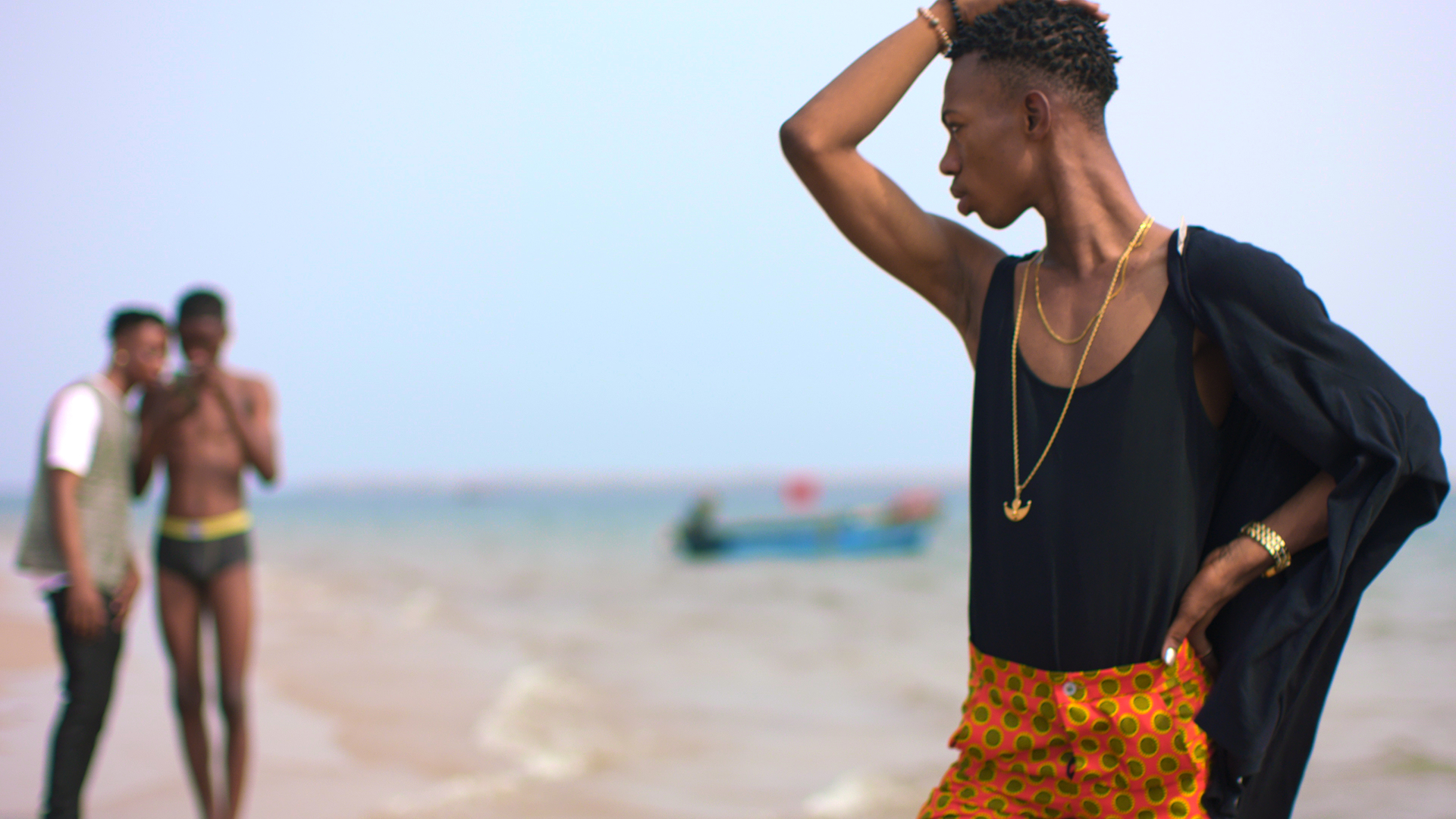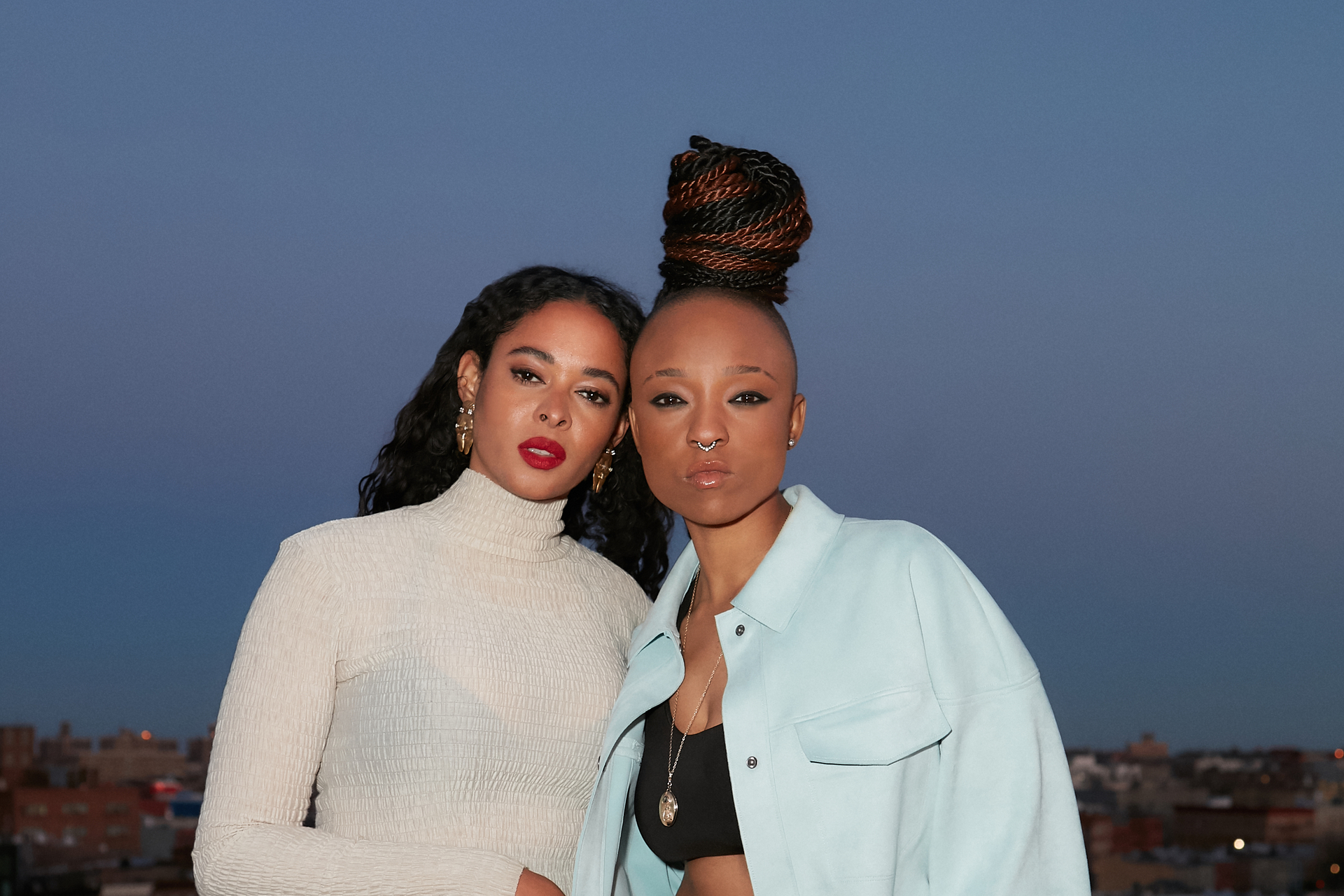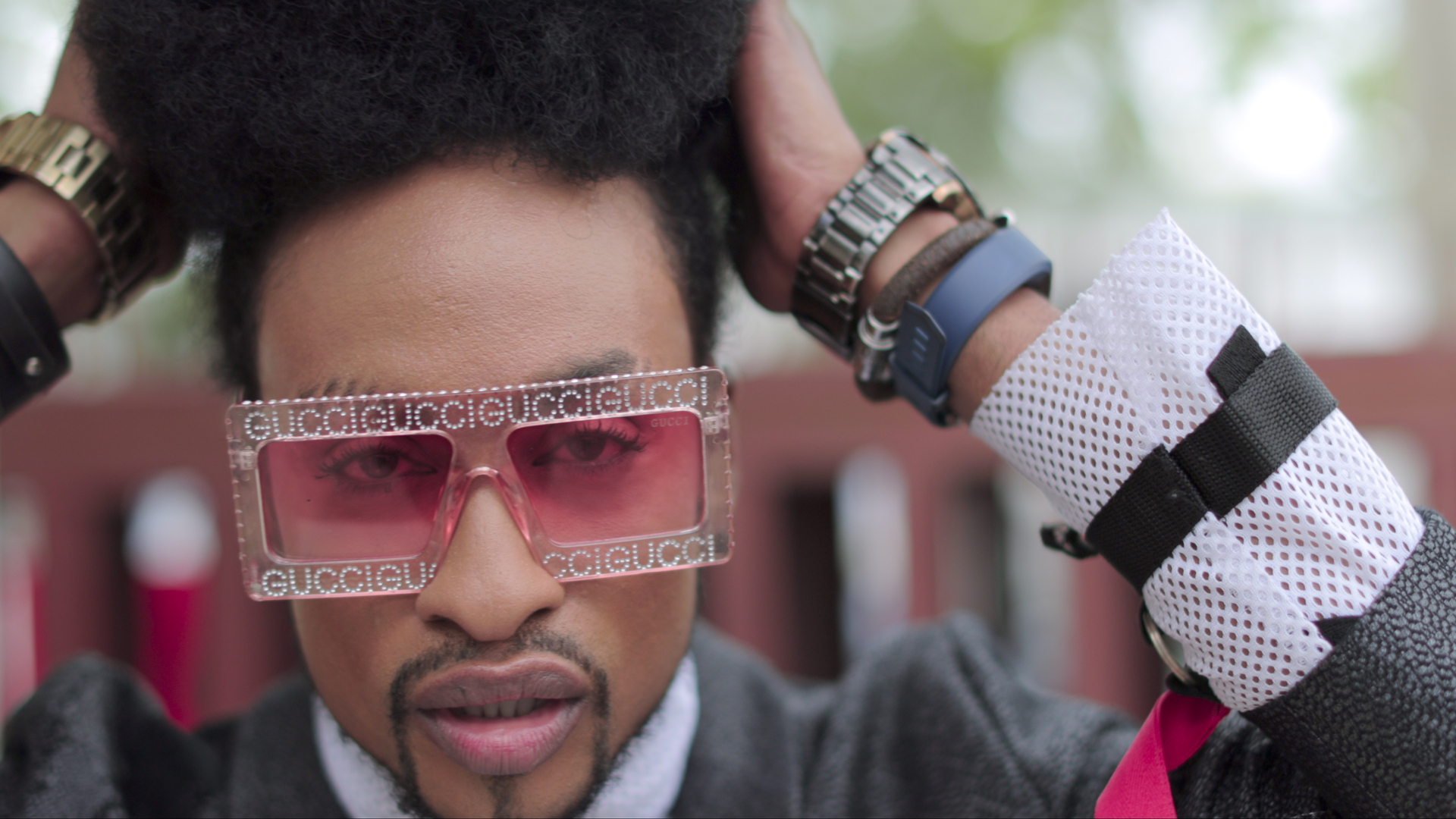In the early hours of 26 August 2018, the Nigerian police raided a Lagos hotel and arrested 57 men for their participation in what was described as a “homosexual initiation”. Under the Same-Sex Marriage Prohibition Act, passed in 2013, such crimes carry a hefty sentence. The following weeks saw the Nigerian police put these men through a brutal media trial without protecting their identities, making an example of their case and leaving them entirely vulnerable to violent discrimination. In HBO‘s new documentary, The Legend of the Underground, we see firsthand how the hyper-visibility of this case shifted the course of these mens’ lives — with many losing their jobs, getting chased out of their homes and having to start life from scratch. But more importantly, we see a pivotal moment in Nigeria’s queer history being documented with nuance, dignity and humane objectivity.
Created by Nigerian-American filmmaker Nneka Onuorah and Jamaican-American filmmaker Giselle Bailey, the documentary, released at the end of last month to critical acclaim, takes in both the beauty and the hardship of life as a queer Nigerian — from the budding underground ballroom scenes and the tireless work to create safe spaces, to the trauma that comes with fleeing the country and the many forms of displacement that affect marginalised communities.
This is not the first documentary to focus on issues affecting queer Nigerians. In fact, there has been a number of efforts since the passing of the SSMPA bill, by independent queer filmmakers and human rights organisations. In November 2020 for example, The Rustin Times, a Nigerian queer publication, released a short documentary via YouTube titled Defiance: Voices of a New Generation. It interrogated the state of queer activism in Nigeria from the perspective of the young people behind it. But, by virtue of regulatory issues, Nigerian queer-focused films and documentaries are rarely ever allowed to be distributed through major entertainment channels, preventing these stories from getting the immense reach they deserve. Though it’s not yet available in Nigeria (much to the frustration of curious queer people living there), The Legend Of The Underground has broken that pattern with its HBO release.

Before this, both Nneka and Giselle had been working on a different film project, documenting the challenges faced by a group of queer Nigerians living in the US — many of them refugees who fled to find safety elsewhere. After meeting some of them at a pride parade in New York, Nneka and Giselle were in the middle of telling their story when they discovered James Brown, one of the 57 arrested in 2018 (and now a prominent voice in the documentary) through a viral video of James speaking boldly against the actions of the police during the trial.
This was when the pair decided to add a narrative on what life is like for queer Nigerians still living in Nigeria, like James, to the original story they had intended to tell.
The Legend Of The Underground follows Michael Ighodaro, a queer activist, and one of the men Nneka met at the parade, as he travels back to Nigeria and revisits a community he was forced to flee in 2013 after a violent homophobic attack. His visit not only helps to strike a narrative balance between the realities of being queer in Nigeria and being Nigerian and queer in the US, it also kickstarts a vital conversation around displacement.
“Displacement and rejection is the first heartbreak for so many people in the LGBTQ+ community,” Giselle says. “It shifts how we see ourselves and shifts the course of our life, and that is why we made it central to the plot because there isn’t enough empathy around that.”

Through Michael and James’ eyes, we come to see the resilience of queer people in Nigeria, committed to staying visible and using social media to raise awareness of issues that affect them. “The whole world is watching me, so do your worst,” James says defiantly in a scene from the documentary.
Another perspective comes from 24-year-old Timi. The film uses clips from his podcast Queercity, which describes itself as “Nigeria’s first weekly LGBT lifestyle based podcast”. Timi spoke with some of the 57 men who were arrested and, incorporating elements of these interviews, we get more insight into the horrible events surrounding their arrest. Timi hopes that this documentary, through its reach on a global streaming platform, will aid some level of societal change. “Telling the Nigerian queer story is what I love doing, and being given this opportunity to tell it to the world meant a lot to me,” Timi says. “This means that the world is out there to listen to our story.”
Despite the hardships, at the centre of this film is the restorative power of community, first seen through Michael’s chosen family in New York, and more broadly through the eyes of “The Royal House of Allure”, James Brown’s chosen family; a group of creatives who provide unwavering support for each other in spite of the financial difficulties they face. “I’m very excited about [this documentary],” Matthew Blaise, a prominent queer rights activist says. “These are stories of people who have seen homophobia and discrimination due to their queerness and/or being HIV+, yet still choose to live their true self and find alternative ways to organise and cope, in a system sworn to erase them. They tell the stories of many more of us.”

“There’s not just one type of nonconformist in Nigeria, and there are vast amounts of stories yet to tell, and we only had about an hour and ten minutes for this particular story,” Nneka says. This constriction of time and specificity of the story explains the minimal presence of other queer identities that aren’t cisgender. Only a handful of queer women made an appearance in the film, and trans and non-binary people weren’t shown at all. But Nneka and Giselle say they are confident that this is the beginning of many more Nigerian queer stories to come.
Despite HBO not being available in Nigeria, Nneka and Giselle are committed to ensuring — through partnerships with NGOs — that those who need to see it are able to watch a documentary made from their lived experiences. In the meantime, it’s available to a far wider audience, and reasserts the understanding that queer Nigerian stories deserve that platform.
Other queer Nigerians we spoke with share that another importance of this documentary is in how it enriches Nigeria’s budding queer history. “I am hoping to see more stuff that documents [our] moments as a people and as a community,” Steve*, a 26-year-old queer Nigerian says. “It’s important, because simple stuff like those 57 men being arrested would go away if they weren’t preserved through mediums like this [movie].”
*Some names have been changed to maintain the contributors’ privacy
Follow i-D on Instagram and TikTok for more on queerness worldwide.


